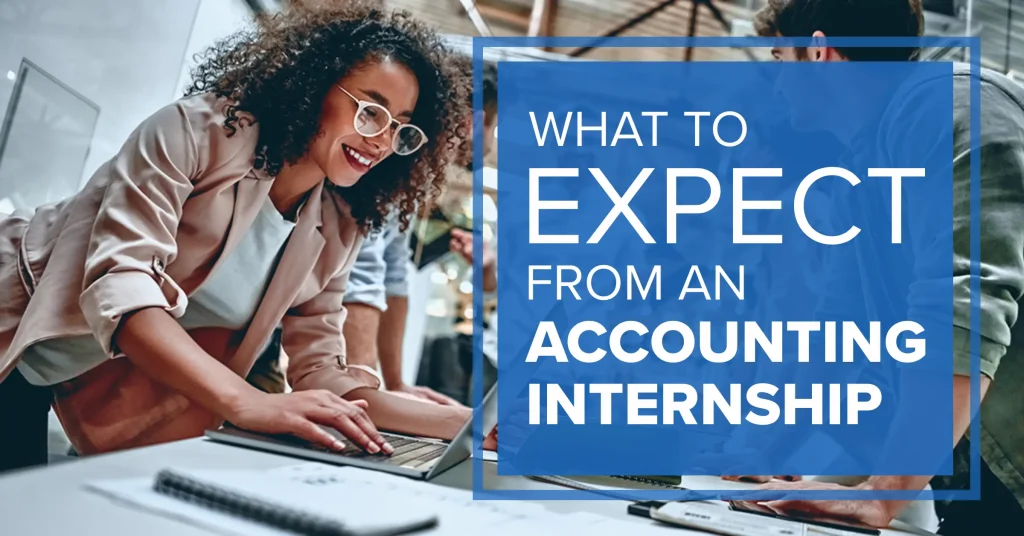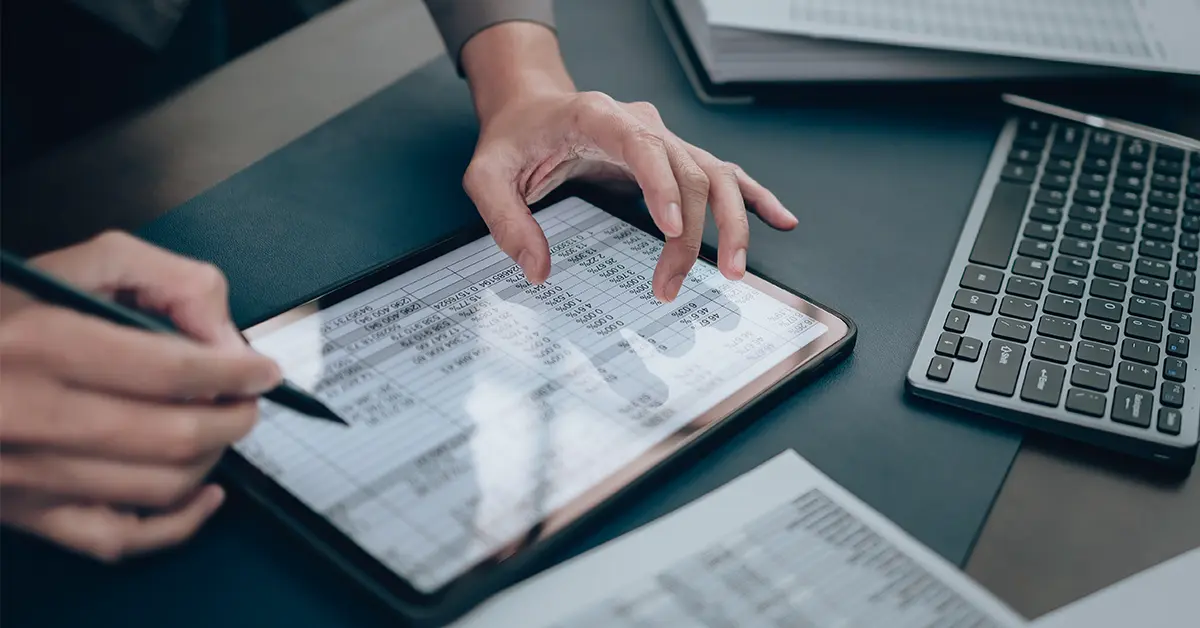Their names are Ryan Lopes, Hannah Schambow, Mitch Weiland, and Mallory Dillman. Read on to see our favorite responses!
The connections I made at [Baker Tilly] are invaluable. Speaking with the CFO, controller, and everyone at the firm has helped me tremendously because I feel like I have a strong, supportive network.
What Were You Looking For in an Accounting Internship Opportunity?
Ryan: I was looking for a professional and welcoming workplace environment with room to grow. I wanted a place where I could position myself to have a successful career, with the possibility of moving from an internship to a full-time opportunity.
Hannah: I was looking for a better idea and more hands on experience about the profession I’d be entering into. I was specifically looking for experience in the tax field during busy season since I had previous experience in audit. I wanted to get a better idea of what that all entailed.
Why Did You Apply for an Accounting Internship at Your Firm?
Ryan: I chose PKF O’Connor Davies (PKFOD) not only because they have a local office in my hometown, but also because when I met them at a career fair on campus, everyone was very inviting, personal, and professional. I felt very welcomed and comfortable, so I was really able to be myself around everyone. They were flexible with my school schedule and they were and still are a growing firm on the rise, which was what I was looking for.
Mitch: I had heard a lot of good things about [Baker Tilly] from my peers, some of whom actually had done internships with them and spoke highly about it. They talked about the great way they treated them as well as regular employees, and I knew they were a decent mid-sized firm. I had also interacted with them at my college’s career fair in addition to doing my own research online. I learned that they offered a variety of services to specific industries.
What Was the Accounting Internship Program Like?
Hannah: My internship lasted from January 3 to April 18th, which was basically busy season. I and the other interns had one week of training in the beginning that went over everything we needed to know, and I read a lot of booklets to reference throughout the rest of busy season.
In the beginning, I was doing more business returns and odd projects; things that would help me get into a place where I was capable of doing tax returns. We also worked on backlogs, which was a list of things assigned for you to do to help you work autonomously and independently. Our managers and staff checked in regularly with us in the beginning.
As the internship progressed, we began working out of a pool from our online routing system that we could all pull from. At this point we were completing individual returns. We were encouraged to talk to our managers and other staff members who were always there to help if we needed it, but we were mostly working on our own as we would upon being a full-time staff member.
I was nervous when I began the internship, expecting to work a lot of hours. However, our team had engineered the workload so that it wasn’t overwhelming for anyone. They tried to keep it as manageable as possible, which really worked! Everything was organized and getting through the crux of busy season wasn’t at all as bad as I thought it would be.
Mitch: My internship lasted for 4 months, beginning in early January and wrapping up around the end of Tax Season. They were very transparent about the hours, expectations, and what I had to do.
They set me up with a buddy system, in which every intern or new hire is assigned a more seasoned staffer who has recently been in my position and knows what I’m going through. They’re someone you go to for resources, or to get you set up through the beginning stages, which was extremely helpful.For a majority of the internship, I helped audit clients, and during the last few weeks when the audit work began to dry up, I started doing 1040s and different tax tasks. I enjoyed this since it gave me a taste of both the audit and tax sides.
What Was Your Favorite Aspect About Interning at Your Firm?
Hannah: The level of trust they gave me to work independently and get that real-world experience. I was able to do that in addition to having a very welcoming and supportive team around me. Another thing I thought was really cool was realizing that I was doing people’s real tax returns. This is something that was directly affecting another person, so I’m glad I was able to get a lot of hands-on training and experience.
Mallory: The fact that they let me go out in the field on audits. I got to be super hands-on and speak with clients and ask them questions. I feel like some firms wouldn’t let you get that type of exposure in your first year, so I really enjoyed it.
What Was the Most Valuable Experience During Your Accounting Internship?
Ryan: The exposure I had to all aspects of the business between tax, audit, entrepreneurial services, etc., not just one line of the business. Beyond that, I was also immersed in my firm’s company culture, understanding the major aspects of what we do as a firm and how we provide it.
I was invited to several client meetings with partners which helped me really understand and adapt to our motto, “Know greater value.” I saw on a 1-on-1 level the true appreciation our clients have for the service we provide to them; to me I felt that there really was no greater value than what we strive for and provide. Sitting in on meetings at an internship level was huge for me because I was able to develop relationships in professional detail with the clients, which made me feel like I was fully part of the team.
Mitch: I gained so much general and specific knowledge about the industry I was working in, and also learned how to use accounting software on a day-to-day basis. That was probably equally important since it helped me accomplish my tasks. Overall, I learned how to be a responsible professional in my real first professional-type job. That’s something school can’t teach you and is invaluable to take with you as you move forward.
What Was the Most Challenging Part of Your Accounting Internship Experience?
Hannah: Being exposed to something completely new. When we were doing businesses and then went to individual taxes including rentals, it was challenging to continue adding new components to my knowledge base, and at times confusing. Finding a balance between acquiring knowledge and staying on top of the workload was challenging, but a good experience.
Mallory: Feeling like I didn’t know enough the entire time. As a college student, I’m used to being graded at everything I do. Transitioning that to a CPA firm without prior knowledge was difficult to say the least! But everyone here was very helpful and said I was doing fine and good work—it’s just hard to find validity when there was nothing I could pull from my past to compare it to!
How Has Interning Affected Your Personal and Professional Life?
Mitch: Professionally, it has helped me a lot. I made a lot of great connections and learned how to be a better professional in the workplace. And since I recently graduated, it will give me a huge leg up in my accounting career. On a personal level, it has helped me make a good transition into the real world. I’ve never worked this much before, and all the problems I had before my internship now seem minor in retrospect.
Mallory: Personally, I now know I have what it takes to become a CPA and make it through busy season. Professionally, I landed a job with Baker Tilly full-time! It’s great to know that after graduation, I have a full-time job waiting. In addition, the connections I made at this firm are invaluable. Speaking with the CFO, controller, and everyone at the firm has helped me tremendously because I feel like I have a strong, supportive network.
Why Are Accounting Internships Important?
Hannah: Internships give you a clear idea and experience of what you would be doing after graduation; therefore, I would personally recommend doing at least one if not more internships if possible. And test out different areas because my classroom and real-life experiences with tax and audit were very different. Going out into the field gave me a better idea of which one I actually preferred. Everyone says that you’ll have a clear preference between audit and tax, but you’ll only know for sure if you get out there and actually do the work.
Mallory: Because you definitely need accounting experience before you jump into it head first. Accounting is both private and public. Some people hate private and want to do public, or want to go to a company and be a controller there. Internships help you figure out what side of accounting you want to be on. In addition, in my case, having an internship helped me land a job with a firm. A lot of the time, they lead to full-time opportunities which can really help you get a jump start on your career.
What’s Your Best Piece of Advice to Land an Accounting Internship?
Ryan: Focus on yourself academically and personally. Develop yourself as a person by joining organizations, playing a college sport, and developing leadership qualities. Don’t be afraid to go to the career fair to understand the firm you can see yourself at. I remember when I went to my first career fair, I was so nervous, mostly because I didn’t have any accounting experience to offer—all I had was restaurant and real estate experience. But accounting experience is not what they’re looking for. Firms at career fairs want to learn more about you as a person and the potential you can offer to them through your studies and extracurricular activities. Career fairs give you a chance to learn more about what firms have to offer for you at the student level. The bottom line is, give it a shot. Always give it a shot, even if you have more doubt and skepticism than will and desire because you never know what might come your way.
Mitch: While grades are important, what can be even more important is your level of involvement both in and outside of college. For me, Baker Tilly looked a lot at my extracurriculars and social abilities. They wanted to see my communication skills and see if I could hold a conversation well. Being involved with clubs and different organizations can be indicative of this. Also, don’t be afraid to get out there and apply to as many internship opportunities as possible. Then you can narrow down your choices if you get multiple offers.
Want to pass the CPA Exam on the first try?
See how Roger’s energy + UWorld’s revolutionary Qbank will help you pass the first time.




